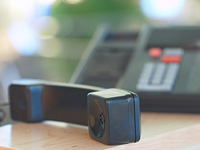 Ofcom have just announced a new regulatory code for Voice over Internet Protocol (VoIP) service providers operating in the UK.
Ofcom have just announced a new regulatory code for Voice over Internet Protocol (VoIP) service providers operating in the UK.
With predictions estimating that there could be as many as three million VoIP users in the UK by the end of this year, Ofcom clearly felt it was time to set some base rules for the industry to adhere to.
They’re broadly divided in two – prescribed information to tell the consumer before they sign up and once they have signed up, making them aware of the limitation of their access to the emergency services.
For a long time the lack of solid emergency (999) number access has been used by the incumbent telecos to try and stem the growth of VoIP. Their argument? If someone calls 999, there is no assured way of telling if that person is calling from Basildon, Birmingham, or Beijing, as the handset just needs to be on an IP connection, to attached to the end of a specific piece of wire, like a landline is.
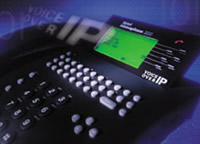 Before June 2007, all VoIP providers will be required to make it clear :-
Before June 2007, all VoIP providers will be required to make it clear :-
- whether or not the service includes access to emergency services (some operators may choose not to provide any support at all);
-
the extent to which the service depends on the user’s home power supply (Standard telephones are powered by the phone line itself, where as Broadband services require external power to a number of different boxes to function);
-
whether directory assistance, directory listings, access to the operator or the itemisation of calls are available; and
-
whether consumers will be able to keep their telephone number if they choose to switch providers at a later date. (This is known as number portability, and would seem reasonable to offer, given it is standard throughout the rest of the telecoms markets).
If a customer decides to sign up for a VoIP service, the provider has additional obligations around emergency calls:-
- secure the customer’s positive acknowledgement of this at point of sale (by ticking a box, for example);
-
label the capability of the service, either in the form of a physical label for equipment or via information on the computer screen; and
-
play an announcement each time a call to emergency services is attempted, reminding the caller that access is unavailable.
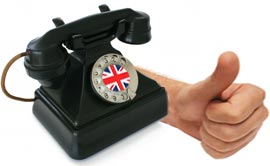 Phone services offering freebie calls over the Internet are still only being used by a niche following according to new research.
Phone services offering freebie calls over the Internet are still only being used by a niche following according to new research. Samsung have announced two 22″ monitors with a mic and 2mpx video camera built-in.
Samsung have announced two 22″ monitors with a mic and 2mpx video camera built-in.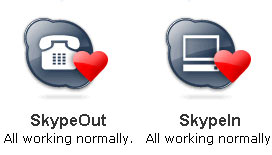 Some Skype users faced a frustrating weekend after a software bug left many unable to log in to the Internet phone service.
Some Skype users faced a frustrating weekend after a software bug left many unable to log in to the Internet phone service. Skype, clearly never ones to stay still, have released a new version of the PC Skype client – version 3.5.
Skype, clearly never ones to stay still, have released a new version of the PC Skype client – version 3.5. BT are to offer those who sign up for their Business Broadband Voice service – VoIP to you and me – an option of having a local phone number connected to it. At a charge, naturally.
BT are to offer those who sign up for their Business Broadband Voice service – VoIP to you and me – an option of having a local phone number connected to it. At a charge, naturally.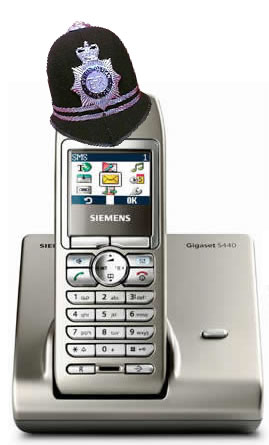 Ofcom has published a proposal that some VoIP services should allow users to call 999 to connect to emergency services as soon as by early 2008.
Ofcom has published a proposal that some VoIP services should allow users to call 999 to connect to emergency services as soon as by early 2008.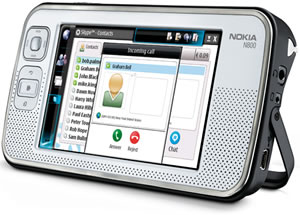 Nokia has officially announced that they have made Skype available to run on the Nokia N800 Internet Tablet.
Nokia has officially announced that they have made Skype available to run on the Nokia N800 Internet Tablet.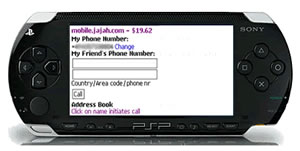 Sony and BT have just signed a four year deal to extend the function of the Sony PSP to have it act as a Wi-Fi video and voice ‘softphone’.
Sony and BT have just signed a four year deal to extend the function of the Sony PSP to have it act as a Wi-Fi video and voice ‘softphone’.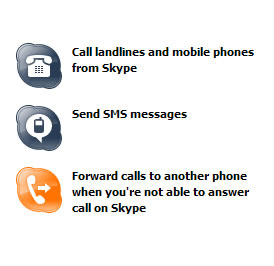 If you’re a user of Skype-Out, the service that lets you call landlines from Skype, you may have come across a peculiar reaction when you’ve dialed people abroad. Our experience has ranged from puzzlement to down-right bewildered, “Where’s dialing code 0000 from?”
If you’re a user of Skype-Out, the service that lets you call landlines from Skype, you may have come across a peculiar reaction when you’ve dialed people abroad. Our experience has ranged from puzzlement to down-right bewildered, “Where’s dialing code 0000 from?” Ofcom have just announced a new regulatory code for Voice over Internet Protocol (VoIP) service providers operating in the UK.
Ofcom have just announced a new regulatory code for Voice over Internet Protocol (VoIP) service providers operating in the UK. Before June 2007, all VoIP providers will be required to make it clear :-
Before June 2007, all VoIP providers will be required to make it clear :-